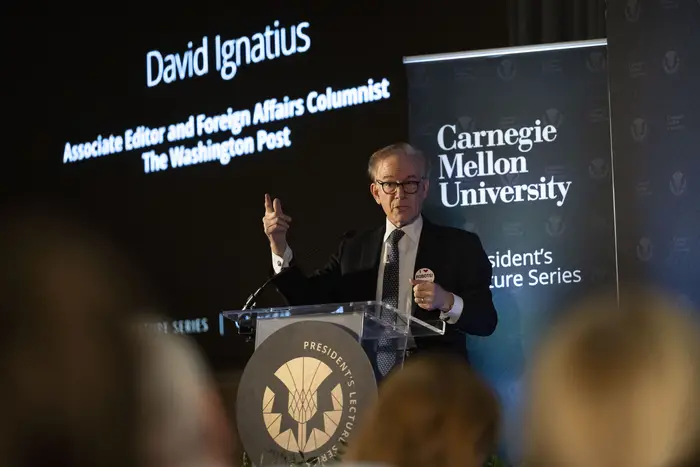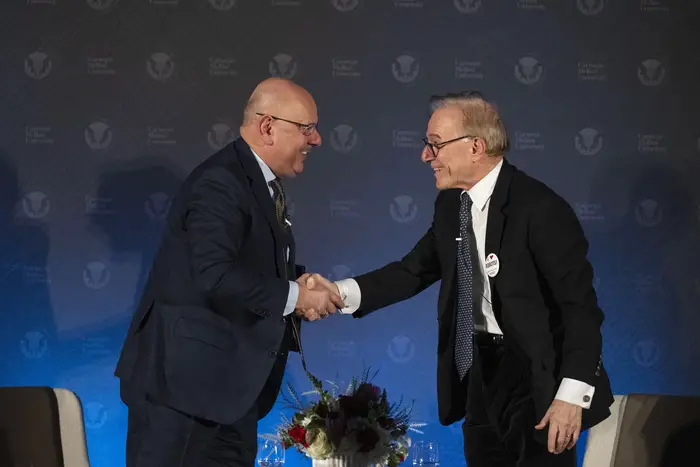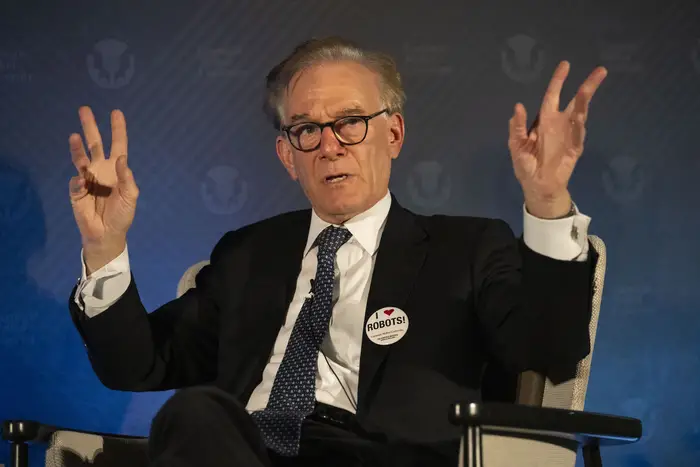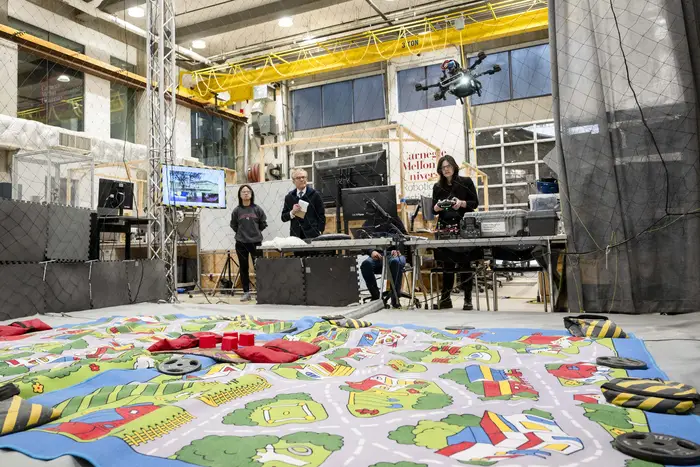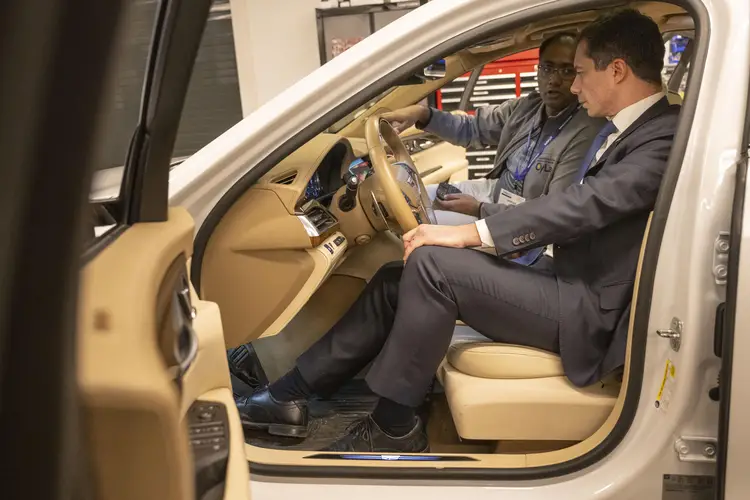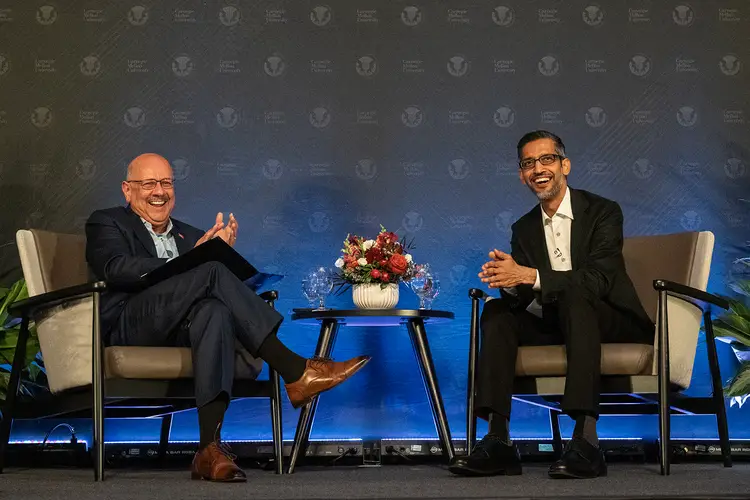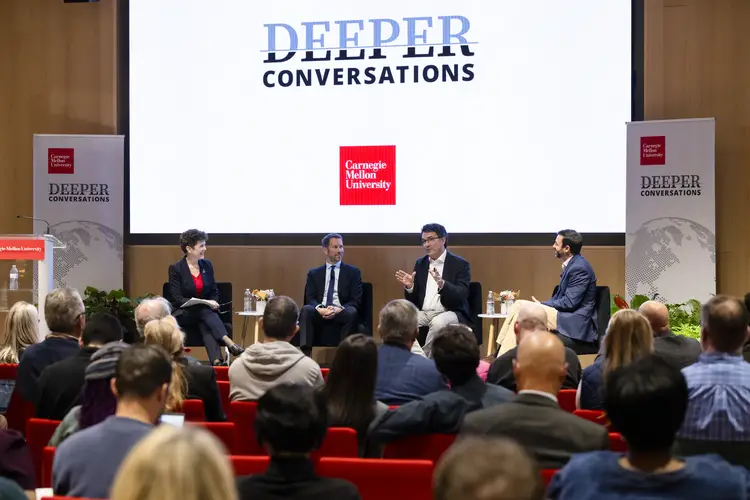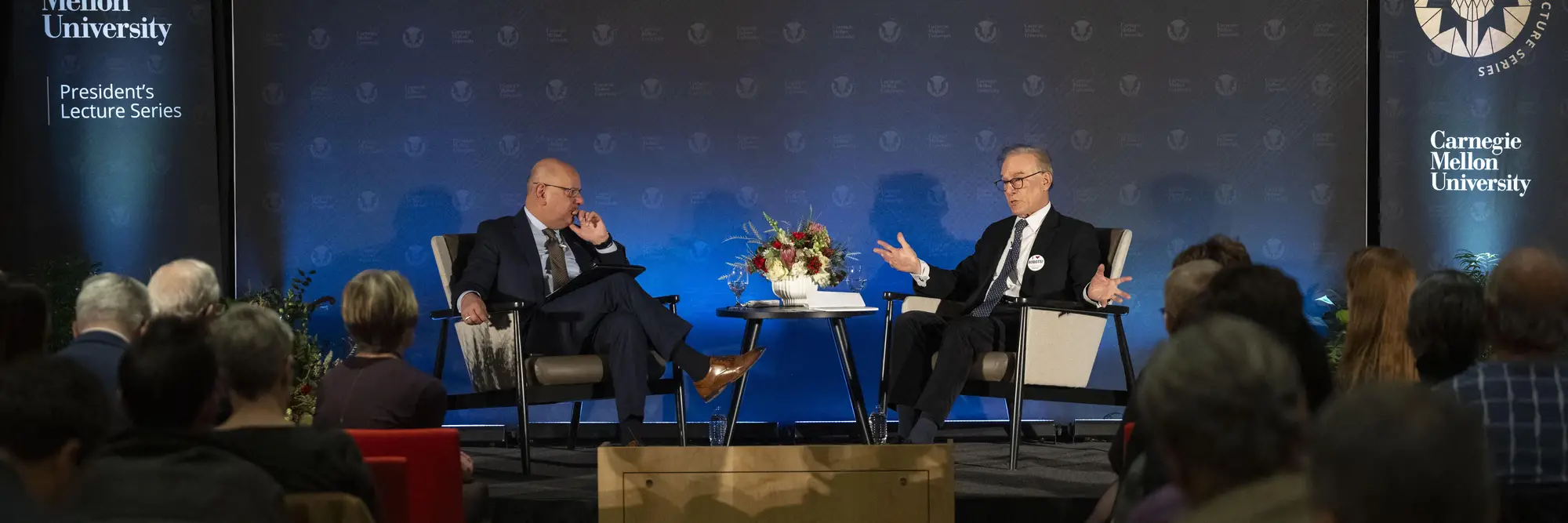
Washington Post Columnist David Ignatius Looks Ahead After 2024 Election
Media Inquiries
Journalism has changed immensely during the career of Washington Post Columnist David Ignatius, and the rise of the internet has taken things in unexpected directions, he said Thursday during a lecture at Carnegie Mellon University.
“The dream that we had … (that) the internet, the digital world, would lead to a new era of freedom of the dissemination of information everywhere, and that would be liberating — turned out, it didn’t work that way,” Ignatius said. “The paradox is that this internet world ends up creating greater social control in repressive countries and greater social chaos in free countries, that’s just the way it’s worked out.”
Ignatius spoke as part of both Carnegie Mellon University’s President’s Lecture Series(opens in new window), for influential thought leaders; and Deeper Conversations(opens in new window), university-wide programming to promote the power of civil discourse.
His talk, titled “America and the World: What's Ahead After the 2024 Election?” focused on how he has chosen where to focus his work since Trump’s inauguration on Jan. 20.
“I spent the first 10 days of Trump’s presidency trying to follow my instincts as a columnist, but I’m really a reporter,” he said.
Ignatius, who writes a biweekly column for the Washington Post(opens in new window), has been a member of the newspaper’s staff since 1986. He served as an embedded journalist during the U.S. invasion of Iraq and witnessed the Arab Spring in Cairo. He has also written 12 novels, including “Body of Lies,” which was adapted into a 2008 film directed by Ridley Scott, starring Leonardo DiCaprio and Russell Crowe.
Farnam Jahanian(opens in new window), president of Carnegie Mellon University, introduced Ignatius, who delivered his lecture, then sat down for a Q&A session led by Jahanian.
Jahanian said the lecture was intentionally 10 days after the beginning of a new administration, to learn from Ignatius’ experience-driven perspective, no matter who was inaugurated.
Jahanian asked Ignatius to weigh in on the effects of the 2024 election on America’s reputation and leadership on the global stage.
Other leaders’ attitudes so far seem to be that of “strategic deference” in a trade of momentum between the changing administrations, Ignatius said. Trump’s desire to end the war in Ukraine and the direction of Russia’s economic and military power could prove consequential.
“One of the most interesting things about Trump is that he ran on a platform that there are too many wars in the world and they’re too dangerous and he’s going to try to end them,” Ignatius said. “It's easy to discount that, but he seems to be serious about it in a way that I at least want to take seriously as a journalist.”
Even with the current state of polarized politics, Ignatius said he sees opportunities where the parties can collaborate during the next four years.
Jahanian recognized an op-ed Ignatius wrote in September 2023(opens in new window), arguing against President Joe Biden running for a second term, which was controversial at the time, and asked Ignatius what the Democrats got wrong in the 2024 election.
He said Biden, whose policies Ignatius thought were sensible, believed he was the only person who could defeat Trump, but polls showed that most of the country was dissatisfied with the status quo.
“Trump says, I have a mandate for change, it’s not entirely wrong,” Ignatius said. “Democrats and Republicans alike aren’t happy with where their country is, and have this feeling that we need to change, and he’s speaking to that.
“The Democrats, so often, seem to be the party that says, ‘You can’t change it,’ and on some subjects, ‘You can’t talk about it,’ and Trump is the guy who will say anything, and people like that. People don’t like to feel that they’re being told what not to say.”
Ignatius began his career working as a reporter for The Wall Street Journal in Pittsburgh, covering the United Steelworkers Union and the collapse of the steel industry in the mid-1970s.
The “gritty, scrappy” city — as Jahanian called it — where Carnegie Mellon calls home can teach the rest of the country resiliency, Ignatius said.
Ignatius remarked on the years of economic stagnation in once thriving steel towns in the region, but how new redevelopment and investments like Mill 19(opens in new window), built on a 178-acre site of a former steel mill, show what is possible.
“It turned out Pittsburgh had these incredible resources — with CMU and UPMC at the top of the list — that were incredible technology and job generators,” Ignatius said. “People in this part of the country — and really this is true about America as a whole — were resourceful enough to make new dynamic industries.”
He praised Carnegie Mellon’s ongoing efforts that have raised the university’s impact and prominence.
“CMU is a national treasure, and it just keeps going up in the league tables. If it was a soccer team, it would be in the Premier League, having started in the fourth division,” Ignatius said. “My optimism is certainly enhanced by coming to Carnegie Mellon and seeing all the things your students and your faculty are doing.”
Carnegie Mellon takes its role seriously in providing space for the development of ideas into opinions among those on its campus and beyond, Jahanian said.
“There’s no question that politics in America and around the world – particularly in times of transition – offer us plenty of opportunities to connect, add our own perspectives, ask questions and learn,” Jahanian said. “In fact, we at CMU are intentional about building bridges of understanding and engaging in civil discourse, especially when emotions are high and topics are complex.”
